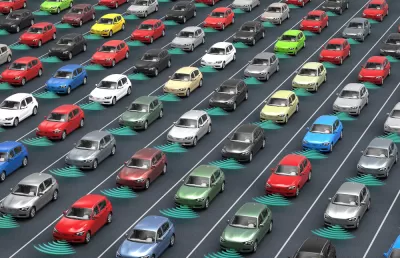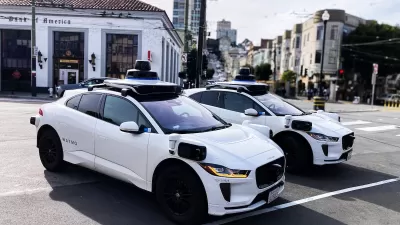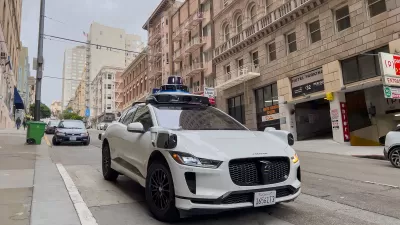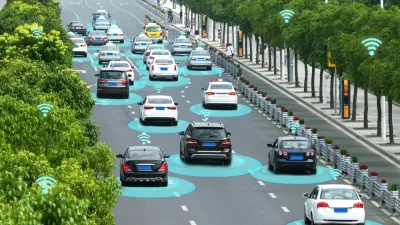The founder of New Urbanism takes his autonomous vehicle skepticism, and ideas for other solutions to congestion, to the pages of the New York Times.

"Peter Calthorpe thinks Silicon Valley has it all wrong," writes John Markoff for the New York Times. "He rejects the ideas of tech industry visionaries who say personal autonomous vehicles will soon be the solution to urban problems like traffic congestion."
Calthorpe, famous in planning circles as one of the founders of New Urbanism, is adding his voice to a growing chorus of skepticism on the likelihood that self-driving cars are capable of delivering some of the benefits promised by boosters of the technology.
“One thing is certain: Zero- or single-occupant vehicles,” even ones that can drive themselves, “are a bad thing,” he and the transportation planner Jerry Walters wrote in an article last year in Urban Land, an urban planning journal. “They cause congestion, eat up energy, exacerbate sprawl and emit more carbon per passenger-mile.”
Instead of a self-driving car status quo that merely exacerbates the current auto-congested status quo, Calthorpe is promoting ideas, explained in more detail in the article, that evolve the concept of transit oriented development.
FULL STORY: Urban Planning Guru Says Driverless Cars Won’t Fix Congestion

Planetizen Federal Action Tracker
A weekly monitor of how Trump’s orders and actions are impacting planners and planning in America.

Maui's Vacation Rental Debate Turns Ugly
Verbal attacks, misinformation campaigns and fistfights plague a high-stakes debate to convert thousands of vacation rentals into long-term housing.

Restaurant Patios Were a Pandemic Win — Why Were They so Hard to Keep?
Social distancing requirements and changes in travel patterns prompted cities to pilot new uses for street and sidewalk space. Then it got complicated.

In California Battle of Housing vs. Environment, Housing Just Won
A new state law significantly limits the power of CEQA, an environmental review law that served as a powerful tool for blocking new development.

Boulder Eliminates Parking Minimums Citywide
Officials estimate the cost of building a single underground parking space at up to $100,000.

Orange County, Florida Adopts Largest US “Sprawl Repair” Code
The ‘Orange Code’ seeks to rectify decades of sprawl-inducing, car-oriented development.
Urban Design for Planners 1: Software Tools
This six-course series explores essential urban design concepts using open source software and equips planners with the tools they need to participate fully in the urban design process.
Planning for Universal Design
Learn the tools for implementing Universal Design in planning regulations.
Heyer Gruel & Associates PA
JM Goldson LLC
Custer County Colorado
City of Camden Redevelopment Agency
City of Astoria
Transportation Research & Education Center (TREC) at Portland State University
Jefferson Parish Government
Camden Redevelopment Agency
City of Claremont





























